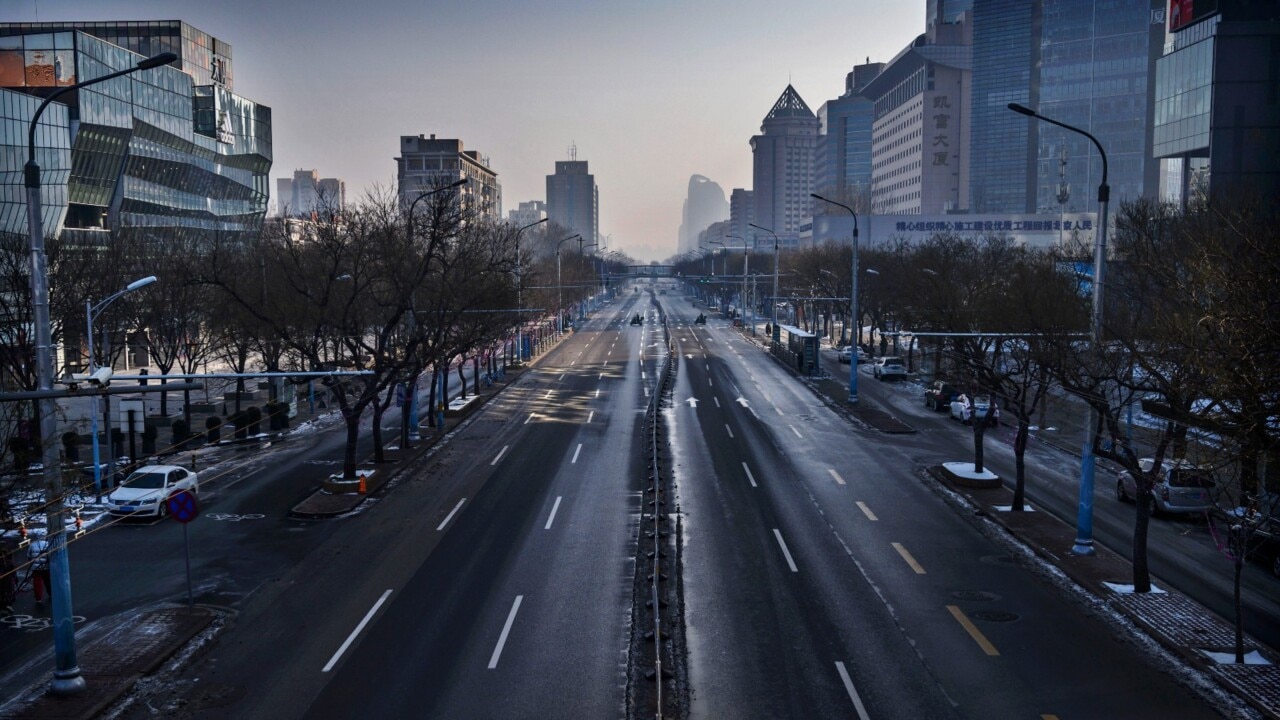Bloodbath on the ASX as China’s Covid crisis sends mining, energy companies into freefall
The Australian sharemarket was in free fall on Tuesday morning due to worrying news out of China, with some of our biggest companies hurting badly.

The backbone of the local sharemarket has been rattled by news the Covid-19 situation in Beijing may force the Chinese city into lockdown and crimp demand for key Australian imports such as iron ore, oil and gas.
The benchmark ASX 200 was in freefall when it resumed trading on Tuesday morning, dropping 2.4 per cent to leave investors staring down their worst session since Russia invaded Ukraine in February.
Savage losses for mining companies BHP, Rio Tinto, and Fortescue Metals left the market bleeding red in the first hour of trade as the bourse dropped to a low of 7290.8.
The broader All Ordinaries fell to 7576.0 and the Aussie dollar was hovering near 72 US cents, having slipped to a multi-week low 71.4 US cents over the weekend.

The local market trimmed its losses to 1.9 per cent by lunchtime but was still lagging regional indices such as the Hang Seng and CSI 300 (both up 1.1 per cent), Nikkei (up 0.5 per cent), Shanghai Composite (up 0.1 per cent).
Tuesday’s ASX sell-off followed a volatile session on Wall Street but was most notably influenced by declining iron ore prices.
Australia’s biggest money-maker fell nearly 10 per cent overnight to $US135.75 a tonne as news came through that lockdowns in Shanghai could soon be replicated in Beijing.
This meant a rapid decline for local mining and energy companies, which together account for more than a quarter of the $1.9 trillion Australian sharemarket.
“When people think that the lockdown of Shanghai – the commercial hub of China with a similar population size of Australia – has cast the worst pain for China, the prospect of a Beijing lockdown is ominously adding fuel to the fire,” IG Markets analyst Hebe Chen said.
BHP shares dropped by as much as 6.2 per cent to $45.51 at Tuesday’s open, with the company losing about $15b in the process.
Rio Tinto was last down by 4 per cent to $109.03 and Fortescue Metals 6.4 per cent lower at $19.86.

Lockdown worries also savaged oil prices, with Brent Crude down 5.3 per cent to $US101 a barrel and US oil 4.7 per cent lower at $US97.30 a barrel.
Woodside Petroleum was down 5 per cent to $30.46 and Santos 3.8 per cent lower at $7.84.
The major banks were also badly affected with shares in Commonwealth Bank, NAB, Westpac and ANZ each losing between 0.7 per cent and 1.3 per cent.
The ASX 200 has shed two months worth of value in the two sessions either side of the three-day long weekend.
Just days ago it was eyeing off a new record high.
Incidentally, it has been a surge in material prices that has lifted the local market in recent months.
Supply pressure from Covid-19 disruptions and the conflict in Eastern Europe have driven the price of core commodities sharply higher and were helping to offset concerns elsewhere that inflation has been left to run too hot.

Chen said a worrying cocktail of inflation, war, and mixed economic outlooks had already caused panic among investors with the China lockdowns only further fraying nerves.
She also noted markets were likely on edge ahead of Wednesday’s first-quarter inflation data, which is tipped to force the RBA into a pre-election rate hike.
Higher interest rates generally have a negative affect company earnings - with the exception of the banks - and in turn can lessen the value of a company’s shares.
Many analysts are now expecting a 0.4 per cent rate rise from the central bank when it meets on May 3 - having previously thought no move would come until June - as surging price pressures suggest the board can wait no longer to the remove emergency policy settings that have been in place since November 2020.
Rates are expected to rise rapidly over the coming year and could even be at 3.5 per cent by the end of 2023.
The RBA has already wound back its extraordinary bond-buying program but has been willing to sit and watch on the cash rate.
It previously tipped the interest rate would remain at a record low 0.1 per cent until 2024 but this month admitted factors such as the Ukraine War and rolling Covid-19 supply chain crisis had forced to bring forward its plans.



